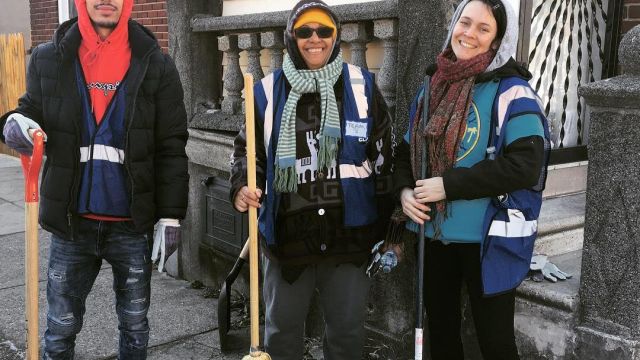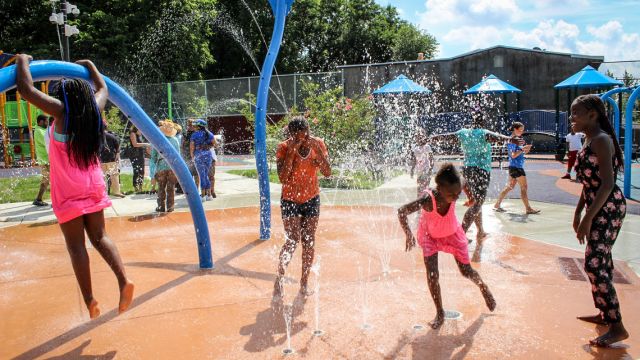The Importance of Public Space Maintenance: How Philly is Meeting an Existing Need
The Importance of Public Space Maintenance: How Philly is Meeting an Existing Need
Public spaces can bring people together, serve as a place for outdoor performances and public art, improve community health, and create environmental benefits. However, research increasingly points to the role that public space quality plays in the well being of communities and their environment. The William Penn Foundation funded a 2019 Temple University synthesis of public space research that found conclusive evidence that public space maintenance determines whether a public space benefits – or harms – its surrounding community.
Recent studies show that poorly maintained public spaces depress property value, attract litter, and incite fear of crime. In addition, badly deteriorated public spaces can also send the very powerful message that a community has been abandoned. For these reasons, we must think critically about the role maintenance plays, not just in the public space projects the Foundation supports, but also in public spaces citywide.
CITIZEN STEWARDS
Philadelphians love their parks and public spaces, and today the city is known nationally for its hundreds of active, committed citizen “friends” groups. These groups, many of which are decades old, are central to park and public space operations. Among other things, the groups fundraise, organize volunteer park clean-ups, and advocate for site improvements. Yet relying on community groups for maintenance cannot be the only solution given the time, energy, and financial resources that fall to neighborhoods with unequal access to wealth and power. Equitable maintenance requires a more systemic approach.
ADDRESSING PHILADELPHIA’S MAINTENANCE CHALLENGES
In 2016, Mayor Kenney launched a signature public space initiative to address the backlog of critical maintenance needs facing parks, libraries, and recreation centers. The Rebuild program uses revenue from a new beverage tax and an investment of up to $100 million from the Foundation to make improvements to hundreds of community facilities citywide.
Simultaneously, the Philadelphia Parks & Recreation (PPR) department is improving its internal maintenance practices through implementation of a departmental strategic plan supported by the Foundation. In addition to updating its maintenance protocols, PPR is working to improve its asset management system, allowing staff to track each site’s conditions and more proactively manage maintenance needs.
CREATIVE SOLUTIONS ARE NEEDED
The Foundation supports creative solutions to the city’s public space maintenance challenges. One recently awarded grant to the University City District (UCD) offers a potential model for delivering maintenance along with other benefits such as workforce development and local stewardship. UCD creates and maintains popular spaces in its service area and is now reaching deeper into West Philadelphia through a joint pilot program with Philadelphia Parks & Recreation. Through its landscaping social enterprise Green City Works, UCD is launching a model for delivering improved park maintenance. This multi-year pilot includes an analysis of the holistic benefits – such as usage, resident perceptions, and stewardship – of this type of approach.
However, more work is needed to maintain Philadelphia’s public spaces. The William Penn Foundation is interested in learning about and supporting, innovative, community-driven approaches to addressing the city’s public space maintenance needs and its impact on the quality of life for surrounding communities.
If you have ideas or approaches about maintenance and stewardship you want to share or explore with the Foundation we encourage you to get in touch with Cara Ferrentino at cferrentino@williampennfoundation.org.
More Creative Communities Stories

Creating a World-Class Waterfront for Everyone
Learn More
Meaningful Community Engagement
Learn More
